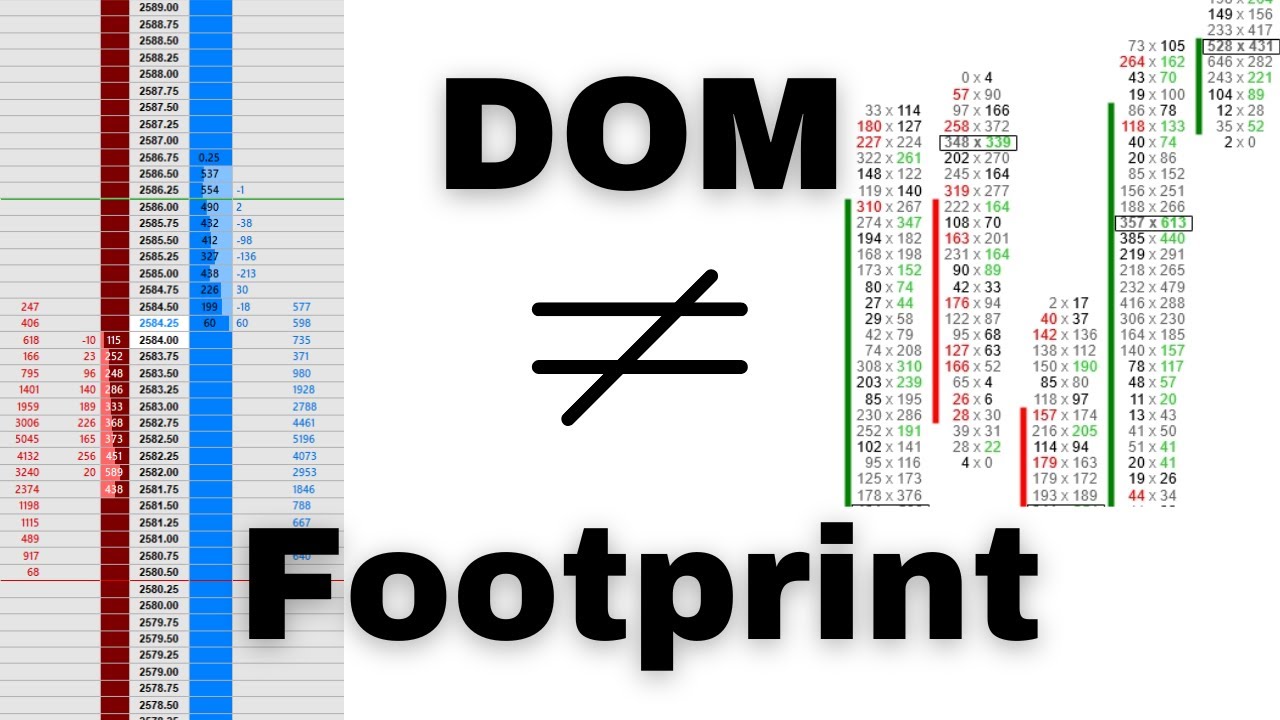Trading Candlesticks Was Hard Until I Learned This PRO SECRET
Summary
TLDRThis video delves into the nuances of order flow trading, emphasizing its superiority over traditional candlestick analysis. It highlights the importance of volume in identifying market strength and recognizing buying and selling imbalances. Key concepts such as Delta, exhaustion, and absorption are explained to help traders spot potential reversals and continuations. The video also introduces volume profile as a critical tool for determining support and resistance levels. By integrating order flow analysis into their strategies, traders can enhance their decision-making and improve profitability.
Takeaways
- 📊 Candlesticks provide valuable price data but can be misleading without considering order flow.
- 🔍 Order flow analysis focuses on volume and executed trades, giving insight into market strength and interest.
- 📈 Delta measures the difference between buying and selling pressure, helping identify market imbalances.
- ⚖️ Exhaustion signals a potential reversal when buying or selling interest wanes at price extremes.
- 🔒 Absorption indicates strong opposing forces when high buying volume fails to push prices higher.
- 🔑 Volume profile visualizes where significant trading occurs, aiding in identifying support and resistance levels.
- 📉 Technical analysis alone can lead to false signals; integrating volume data enhances accuracy.
- 💡 Using tools like Level II and time and sales helps traders gauge supply and demand dynamics.
- 🌟 High volume indicates strong market movements, whereas low volume suggests easy price traversal.
- 🛠️ A multi-faceted trading strategy combines technical analysis with order flow insights for better trading decisions.
Q & A
What is the main purpose of using order flow in trading?
-Order flow helps traders analyze the volume of trades behind price movements, providing deeper insights into market strength and potential price direction, beyond what candlestick charts alone can reveal.
How do candlesticks compare to order flow analysis?
-Candlesticks provide information on price action, including open, high, low, and close prices, but they don't indicate the volume or number of contracts traded, which order flow analysis captures, allowing for a better understanding of market dynamics.
What are the components of order flow?
-The main components of order flow include volume, which indicates market interest, and the analysis of imbalances between buying and selling pressure that can signal potential market direction.
What is the significance of volume in trading?
-Volume signifies the strength of a price movement; high volume at specific price levels often indicates strong support or resistance, helping traders make more informed decisions.
What are high volume nodes (HVNs) and low volume nodes (LVNs)?
-HVNs are price levels with significant trading activity that can act as support or resistance, while LVNs are areas where price can move easily, indicating lower liquidity.
What role does cumulative delta play in order flow analysis?
-Cumulative delta tracks the difference between buying and selling pressure over time, helping traders identify trends and imbalances that can indicate potential price movements.
How can absorption and exhaustion impact trading decisions?
-Absorption occurs when buying volume does not push prices higher, indicating potential selling pressure. Exhaustion indicates when buying volume decreases despite rising prices, suggesting a possible reversal.
What is the difference between executed orders and advertised orders?
-Executed orders are the actual trades that have taken place in the market, while advertised orders are the limit orders that traders place but may not necessarily be executed.
Why is it important to combine order flow with technical analysis?
-Combining order flow with technical analysis enhances trading strategies by providing a more complete picture of market conditions, improving entry signals and risk management.
What tools are commonly used for order flow analysis?
-Common tools for order flow analysis include Level Two (DOM), Time and Sales, Cumulative Delta, and Volume Profile, each providing different insights into market behavior and order dynamics.
Outlines

This section is available to paid users only. Please upgrade to access this part.
Upgrade NowMindmap

This section is available to paid users only. Please upgrade to access this part.
Upgrade NowKeywords

This section is available to paid users only. Please upgrade to access this part.
Upgrade NowHighlights

This section is available to paid users only. Please upgrade to access this part.
Upgrade NowTranscripts

This section is available to paid users only. Please upgrade to access this part.
Upgrade NowBrowse More Related Video

Do yourself a favor; learn Order Flow.

Understanding The Differences Between a DOM and Footprint Chart

Mastering Order Flow To Make Money Trading (2023)

The MOST POWERFUL Day Trading Indicator

Understanding Supply and Demand | Fundamental Method vs. The Order Flow Method (2023)

ULTIMATE Candlestick Patterns Trading Guide *EXPERT INSTANTLY*
5.0 / 5 (0 votes)